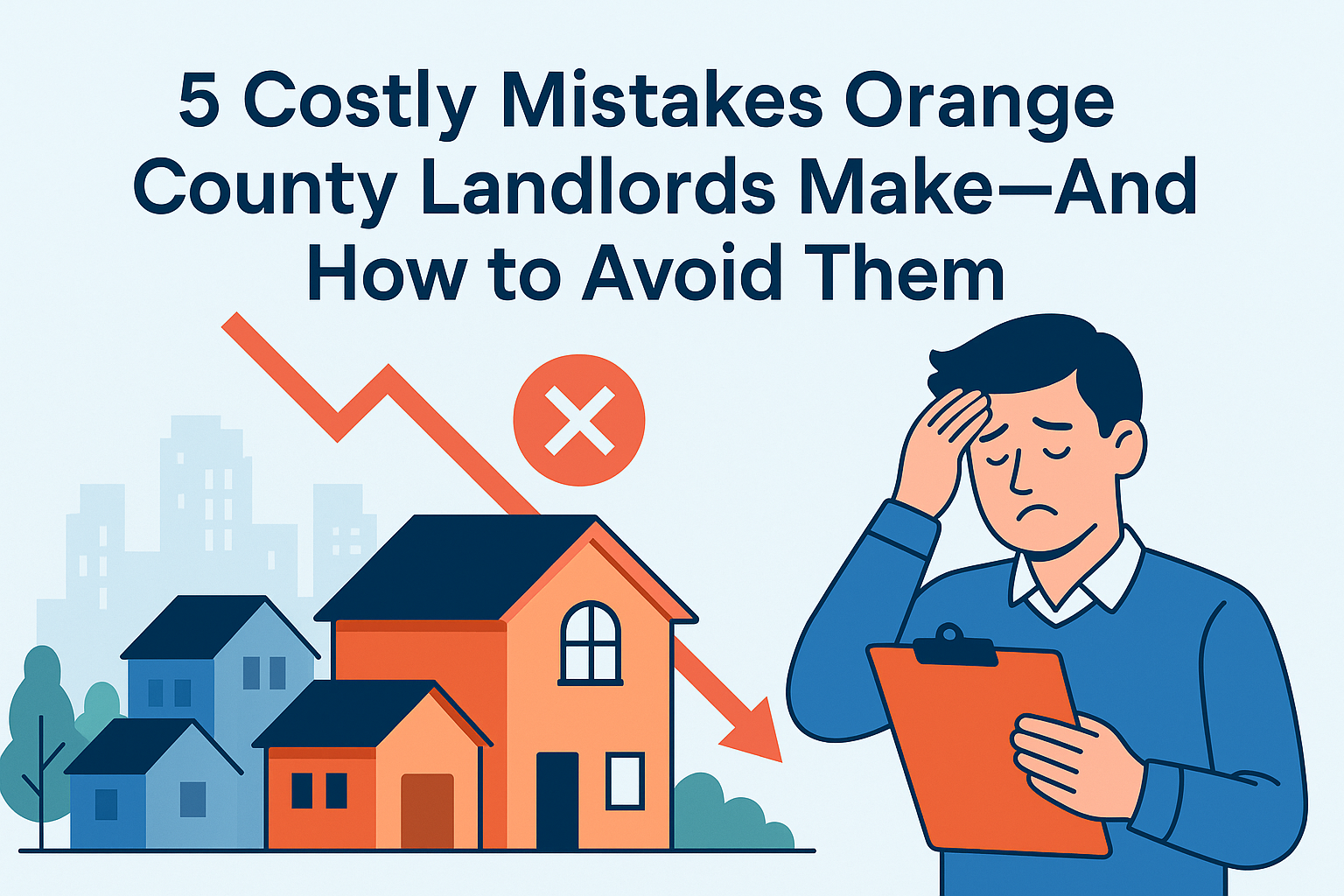Fullerton Security Deposit Refund Guide | California Landlord-Tenant Laws 2025
Security Deposits

Understanding Security Deposit Refunds: A Guide for Fullerton Landlords and Tenants
Security deposits are one of the most common sources of conflict between landlords and tenants. Whether you own a rental property or are renting one in Fullerton, understanding the laws, timelines, and responsibilities around security deposit refunds is crucial. Let’s break down the process and help both sides avoid unnecessary disputes.
1. What a Security Deposit Covers
A security deposit is designed to protect landlords financially if a tenant:
- Leaves unpaid rent
- Causes damage beyond normal wear and tear
- Fails to return the property in a reasonably clean condition
It is not intended to cover routine maintenance, upgrades, or normal use (like worn carpets or faded paint).
2. California Security-Deposit Rules (AB 12 — Effective July 1, 2024)
- Statewide cap: For most rentals in California, the maximum security deposit is one month’s rent (furnished or unfurnished).
- Limited “small-landlord” exception: Up to two months’ rent is allowed only if the owner is a natural person (or an LLC in which all members are natural persons or a family trust) and owns no more than two residential rental properties totaling four units or fewer. This exception does not apply if the tenant is a service member—their cap remains one month.
- Refund timing & documentation: Landlords must return the deposit (with an itemized statement and receipts for charges of $125 or more) within 21 days of move-out. New photo-documentation requirements start in 2025 (photos before move-in, after move-out, and after repairs/cleaning).
- Grandfathering: Deposits legally collected before July 1, 2024 that exceed the new cap may generally be retained under the original terms.
3. Common Deductions (and What’s Not Allowed)
Permitted deductions:
- Unpaid rent or late fees
- Repairs for tenant-caused damage (holes in walls, broken fixtures, missing appliances)
- Cleaning costs to restore the unit to its original condition
Not permitted:
- Fixing normal wear and tear (loose door handles, minor carpet traffic patterns, sun-faded blinds)
- Renovation costs to “upgrade” the property
4. Best Practices for Landlords
To avoid disputes:
- Conduct a move-in inspection with photos and a signed checklist.
- Perform a pre-move-out walk-through so tenants know what needs attention.
- Keep detailed records of all repairs, cleaning, and maintenance.
- Communicate clearly and promptly about the refund timeline.
At White Glove Property Management, we handle this entire process for our clients, ensuring full legal compliance and reducing tenant friction.
5. Tips for Tenants
Tenants can protect themselves by:
- Documenting the property’s condition at move-in.
- Cleaning thoroughly before handing back the keys.
- Returning keys and garage remotes on time.
- Keeping proof of rent payments.
A cooperative approach ensures a smoother refund process.
6. Why Security Deposits Matter
For landlords, mishandling a security deposit can lead to legal claims and costly disputes. For tenants, not understanding their rights can mean losing money they’re entitled to. With proper documentation and communication, both sides can walk away satisfied.
✅
Bottom Line:
Security deposit refunds can be complex, but when handled correctly, they protect both landlord and tenant. If you’re a Fullerton property owner,
White Glove Property Management can manage every step of this process—from inspections to final refunds—ensuring compliance and peace of mind.
Share this post







